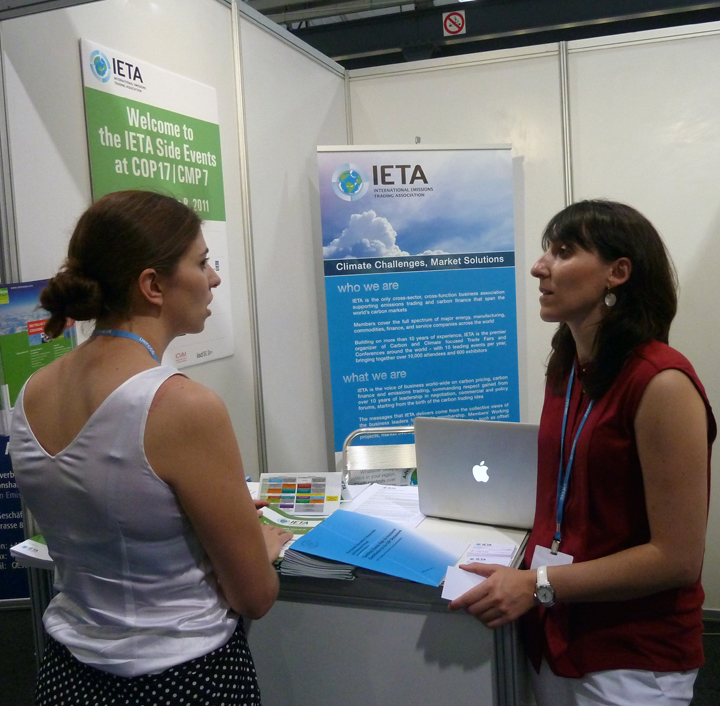Note: The following are the top ten articles from Climate Connections from 2011 according to those the number of views each received. Several of these are original articles/photos from GJEP’s Jeff Conant, Anne Petermann and Orin Langelle, and were also published in magazines, over the wires and cross-posted in other websites/blogs over the past twelve months. We have posted them in reverse order, from number 10 through number 1.
Please subscribe to our news blog on this page or follow us on Facebook or Twitter.
–The GJEP Team
10. A Broken Bridge to the Jungle: The California-Chiapas Climate Agreement Opens Old Wounds (April 7) GJEP post

Photo: Jeff Conant
By Jeff Conant, Communications Director at Global Justice Ecology Project
When photographer Orin Langelle and I visited Chiapas over the last two weeks of March, signs of conflict and concern were everywhere, amidst a complex web of economic development projects being imposed on campesino and indigenous communities without any semblance of free, prior, and informed consent. Among these projects is a renewed government effort to delimit Natural Protected Areas within the Lacandon Jungle, in order to generate carbon credits to be sold to California companies. This effort, it turns out, coincides with a long history of conflicting interests over land, and counterinsurgency campaigns aimed at the Zapatista Army of National Liberation (EZLN), as well as other allied or sympathetic indigenous and campesino groups. Continue article

photo: Kim Kyung-hoon / Reuters. caption: Officials in protective gear check for signs of radiation on children...
9. Nuclear Disaster in Japan; Human Health Consequences of Radiation Exposure and the True Price of Oil (March 15) Cross-posted from Earthbeat Radio
Nuclear power plants across Japan are exploding as the country struggles to cool them down and recover from the massive earthquake and ensuing tsunami. Joining host Daphne Wysham to discuss the latest on the disaster is Damon Moglen. Damon is the director of the climate and energy program for the
Friends of the Earth.
Continue article
–
8. Today’s tsunami: This is what climate change looks like (March 11) Cross-posted from Grist

March 11 tsunami leads to an explosion at Chiba Works, an industrial (chemical, steel, etc.) facility in Chiba, Japan.Photo: @odyssey
So far, today’s tsunami has mainly affected Japan — there are reports of up to 300 dead in the coastal city of Sendai — but future tsunamis could strike the U.S. and virtually any other coastal area of the world with equal or greater force, say scientists. In a little-heeded warning issued at a 2009 conference on the subject, experts outlined a range of mechanisms by which climate change could already be causing more earthquakes, tsunamis, and volcanic activity. Continue article
7. 2011 Year of Forests: Real Solutions to Deforestation Demanded (February 2) GJEP post
 As UN Declares International Year of Forests, Groups Demand Solutions to Root Causes of Deforestation
As UN Declares International Year of Forests, Groups Demand Solutions to Root Causes of Deforestation
Insist Indigenous & Forest Peoples’ Rights Must Be at the Heart of Forest Protection
New York, 2 February 2011-At the launch of the High Level segment of the UN Forum on Forests today, Mr. Sha Zhukan, UN Under-Secretary-General for Economic and Social Affairs will declare 2011 “the International Year of Forests.” Civil society groups advocating forest protection, Indigenous Rights, and climate justice are launching a program called “The Future of Forests,” to ensure that forest protection strategies address the real causes of global forest decline, and are not oriented toward markets or profit-making.
Critics from Global Justice Ecology Project, Global Forest Coalition, Dogwood Alliance, Timberwatch Coalition, BiofuelWatch, and Indigenous Environmental Network charge that the UN’s premier forest scheme: REDD… Continue article
6. Chiapas, Mexico: From Living in the jungle to ‘existing’ in “little houses made of ticky-tacky…” (April 13) GJEP post

Selva Lacandona (Lacandon jungle/rainforest)
Photo Essay by Orin Langelle
At the Cancún, Mexico United Nations Framework Convention on Climate Change (UNFCCC) last year, journalist Jeff Conant and I learned that California’s then-Governor Arnold Swarzenegger had penned an agreement with Chiapas, Mexico’s Governor Juan Sabines as well as the head of the province of Acre, Brazil. This deal would provide carbon offsets from Mexico and Brazil to power polluting industries in California—industries that wanted to comply with the new California climate law (AB32) while continuing business as usual.
The plan was to use forests in the two Latin American countries to supposedly offset the emissions of the California polluters.
Conant and I took an investigative trip to Chiapas in March. When we arrived… Continue photo essay

Overview of the March. Photo: Petermann/GJEP-GFC
5. Photo Essay: Global Day of Action Against UN Conference of Polluters (COP) in Durban (December 3) GJEP post
3 December 2011–Thousands of people from around the world hit the streets of Durban, South Africa to protest the UN Climate Conference of Polluters.
Photo Essay by Orin Langelle/Global Justice Ecology Project and Anne Petermann/Global Justice Ecology Project-Global Forest Coalition. Continue photo essay
4. Showdown at the Durban Disaster: Challenging the ‘Big Green’ Patriarchy (December 13) GJEP post

GJEP's Anne Petermann (right) and GEAR's Keith Brunner (both sitting) before being forcibly ejected from the UN climate conference. Photo: Langelle/GJEP
By Anne Petermann, Executive Director, Global Justice Ecology Project
Dedicated to Judi Bari, Emma Goldman, my mother and all of the other strong women who inspire me
An action loses all of its teeth when it is orchestrated with the approval of the authorities. It becomes strictly theater for the benefit of the media. With no intent or ability to truly challenge power.
I hate actions like that.
And so it happened that I wound up getting ejected from one such action after challenging its top-down, male domination. I helped stage an unsanctioned ‘sit-in’ at the action with a dozen or so others who were tired of being told what to do by the authoritarian male leadership of the “big green’ action organizers–Greenpeace and 350.org. Continue article
3. Photo Essay from Vermont: The Recovery from Hurricane Irene Begins (August 31) GJEP post

Route 100--this and other washed out bridges and culverts cut off the town of Granville, VT from the outside world
As of Tuesday, 30 August 2011, there were still thirteen towns in the U.S. state of Vermont that were completely cut off from the outside world due to the torrential rains of Hurricane Irene. This was because roads like Route 100, which runs north and south through the state, sustained catastrophic damage to its culverts and bridges for many miles. In all, over 200 roads across the state were closed due to wash outs from the heavy rains that pelted the state for nearly twenty-four hours on Sunday, August 28.
Text: Anne Petermann, Executive Director, Global Justice Ecology Project
Photos: Orin Langelle, Co-Director/Strategist, Global Justice Ecology Project Continue photo essay
2. Environmental Destruction, Effects of Climate Change to Worsen in Philippines (January 6) Cross-posted from Bulatlat.com
 By ANNE MARXZE D. UMIL
By ANNE MARXZE D. UMIL
MANILA – The year 2010 should have been an opportunity for the new administration to implement fundamental reforms to protect the environment and national patrimony, especially since during the former administration of Gloria Macapagal-Arroyo, the state of the environment of the country has gone from bad to worse. Continue article
1. Permafrost Melt Soon Irreversible Without Major Fossil Fuel Cuts (February 22) Cross-posted from IPS News
 By Stephen Leahy
By Stephen Leahy
UXBRIDGE, Canada, Feb 17, 2011 (IPS) – Thawing permafrost is threatening to overwhelm attempts to keep the planet from getting too hot for human survival.
Without major reductions in the use of fossil fuels, as much as two-thirds of the world’s gigantic storehouse of frozen carbon could be released, a new study reported. That would push global temperatures several degrees higher, making large parts of the planet uninhabitable.
Once the Arctic gets warm enough, the carbon and methane emissions from thawing permafrost will kick-start a feedback that will amplify the current warming rate, says Kevin Schaefer, a scientist at the National Snow and Ice Data Center (NSIDC) in Boulder, Colorado. That will likely be irreversible. Continue article
 Global Justice Ecology Project Executive Director Anne Petermann was interviewed on the Sojourner Truth show with Margaret Prescod on KPFK on Thursday, January 5 about the outcomes from the UN Climate Conference in Durban, South Africa and the civil society protests there.
Global Justice Ecology Project Executive Director Anne Petermann was interviewed on the Sojourner Truth show with Margaret Prescod on KPFK on Thursday, January 5 about the outcomes from the UN Climate Conference in Durban, South Africa and the civil society protests there.


























